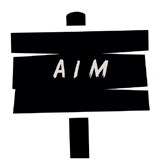PROFILE OF SECONDARY SCHOOL LEARNER in the 21st century
| Site: | Vitajte v prostredí e-learningu na Filozofickej fakulte PU |
| Course: | ELT: DASS Autonomy Development using ePortfolio |
| Book: | PROFILE OF SECONDARY SCHOOL LEARNER in the 21st century |
| Printed by: | Hosťovský používateľ |
| Date: | Saturday, 31 January 2026, 12:20 PM |
 After going through this chapter, you will be able to
After going through this chapter, you will be able to
- to explain the concept digital natives
- to characterise generation Z

Before you read the text:
Give the brief characteritics of a teenage learner. Focus on their interests and needs.
Adolescence is the developmental phase between childhood and adulthood.
Students in secondary schools (aged 15-19) undergo physical and social
changes. "Most physical and mental functions, such as speed, strength,
reaction time, and memory, are more fully developed during the teenage
years. Also, in adolescence, new, radical, and divergent ideas can have
profound impacts on the imagination" (Csikszentmihalyi, n.d.).
Adolescents have developed abstract thinking; "though the transition to
higher levels of cognitive function varies considerably across
individuals. Young adolescents typically progress from concrete logical
operations to acquiring the ability to develop and test hypotheses,
analyze and synthesize data, grapple with complex concepts, and think
reflectively" (Caskey, Anfara, 2007). Teenage learners build upon their
prior knowledge and experiences. Experience induces learners to
construct meaning based on what they already believe and understand.
They search for a social position within their peer group. Caskey and
Anfara (ibid) state that the developmental needs of teenagers affect the
educational environment and organizational structure of the school.
the developmental phase between childhood and adulthood.
Students in secondary schools (aged 15-19) undergo physical and social
changes. "Most physical and mental functions, such as speed, strength,
reaction time, and memory, are more fully developed during the teenage
years. Also, in adolescence, new, radical, and divergent ideas can have
profound impacts on the imagination" (Csikszentmihalyi, n.d.).
Adolescents have developed abstract thinking; "though the transition to
higher levels of cognitive function varies considerably across
individuals. Young adolescents typically progress from concrete logical
operations to acquiring the ability to develop and test hypotheses,
analyze and synthesize data, grapple with complex concepts, and think
reflectively" (Caskey, Anfara, 2007). Teenage learners build upon their
prior knowledge and experiences. Experience induces learners to
construct meaning based on what they already believe and understand.
They search for a social position within their peer group. Caskey and
Anfara (ibid) state that the developmental needs of teenagers affect the
educational environment and organizational structure of the school.
(Image by FREEPIK)
Prensky (2010) states that “Today’s students will not live in a world where things change relatively slowly (as many of us did) but rather in a future where things change extremely rapidly—daily and exponentially. So today’s teachers need to be sure that, no matter what subject they are teaching, they are teaching it with that future in mind”.
Teaching teenagers is a challenge for the majority of teachers. Students at that age are changing physically, coping with strong emotions, building their values, their identity.
Currently, we are facing new types of learners. They were born to the digital era; they live in a world of images, sounds, constant exposure to the latest information. This is also reflected in the way they perceive and elaborate the information. They belong to the so-called Generation Z, also called iGen (see the figure below).
|
Generation Name |
Births |
Births |
Youngest |
Oldest Age |
|
The Lost Generation |
1890 |
1915 |
106 |
131 |
|
The Interbellum Generation |
1901 |
1913 |
108 |
120 |
|
The Greatest Generation |
1910 |
1924 |
97 |
111 |
|
The Silent Generation |
1925 |
1945 |
76 |
96 |
|
Baby Boomer Generation |
1946 |
1964 |
57 |
75 |
|
Generation X (Baby Bust) |
1965 |
1979 |
42 |
56 |
|
Xennials |
1975 |
1985 |
36 |
46 |
|
Millennials / Generation Y, Gen Next |
1980 |
1994 |
27 |
41 |
|
iGen / Gen Z |
1995 |
2012 |
9 |
26 |
|
Gen Alpha |
2013 |
2025 |
1 |
8 |
 Read the following characteristics of
iGen'ers (Twenge, 2021). Which of the following statements surprise you most?
Read the following characteristics of
iGen'ers (Twenge, 2021). Which of the following statements surprise you most?
iGen'ers are:
- Much more tolerant of others - different cultures, sexual orientations, races
- More cautious, less risk taking
- Less drinking and drug taking in high school
- Less likely to go to church
- More likely to think for themselves and not believe authority figures in church or government
- Delaying having serious romantic relationships
- Less teen pregnancy
- Fewer run aways
- Delaying driving, and fewer teen driving accidents
- Less time spent in shopping malls
- Less likely to go out to see a movie
- More likely to use Instagram than Facebook
On the potentially negative side, iGens are known for:
- Less "in person" and "face to face" contact with others due to more time connecting via smart phones
- Heavy use of gaming
- Less reading of books, and newspapers
- Grew up more supervised, more protected than prior generations
- Less experience with teen jobs and earning money in high school
- May stay up till 2 AM using smart phone and social media
- Possibly more depressed than prior generations
- Feels more lonely, and not needed
- Possibly a higher suicide rate
 Teenagers come to the class with learning
habits, with a learning experience, both positive and negative, successful and
less successful. At their age, they are very sensitive and very critical at the
same time. Even though their behaviour can be sometimes erratic, they are
willing to learn, they have various interests and come to class with certain
expectations and needs.
Teenagers come to the class with learning
habits, with a learning experience, both positive and negative, successful and
less successful. At their age, they are very sensitive and very critical at the
same time. Even though their behaviour can be sometimes erratic, they are
willing to learn, they have various interests and come to class with certain
expectations and needs.
Even though technology can be amusing and fun (for a while), it is a teacher who has to understand their needs, know their experience, and decide how to involve them in the lessons, how to make them active in a class and how to support them. Preparing interesting and engaging lessons that make use of their need for creativity, exploration; allowing them to take responsibility, to build their autonomous space and reach self-actualisation might be also a significant step to creating a good teacher-student rapport that supports successful teaching results.
Image by Freepik

Don Tapscott describes netgeneration in his book Grown up digital (2009, pp. 3-6) and summarises the most frequently sounded concerns and criticisms about them, namely, e.g.:

- They are dumber than we were at their age.
- They’re screenagers, net addicted, losing their social skills, and they have no time for sports or healthy activities.
- They have no shame (they post a lot of personal information (and not about themselves unaware of the possible consequences).
- Because their parents have coddled them, they are adrift in the world and afraid to choose a path.
- They steal (violate intellectual property right, downloading books, music, video).
- They’re bullying friends online.
- They have no work ethic and will be bad employees